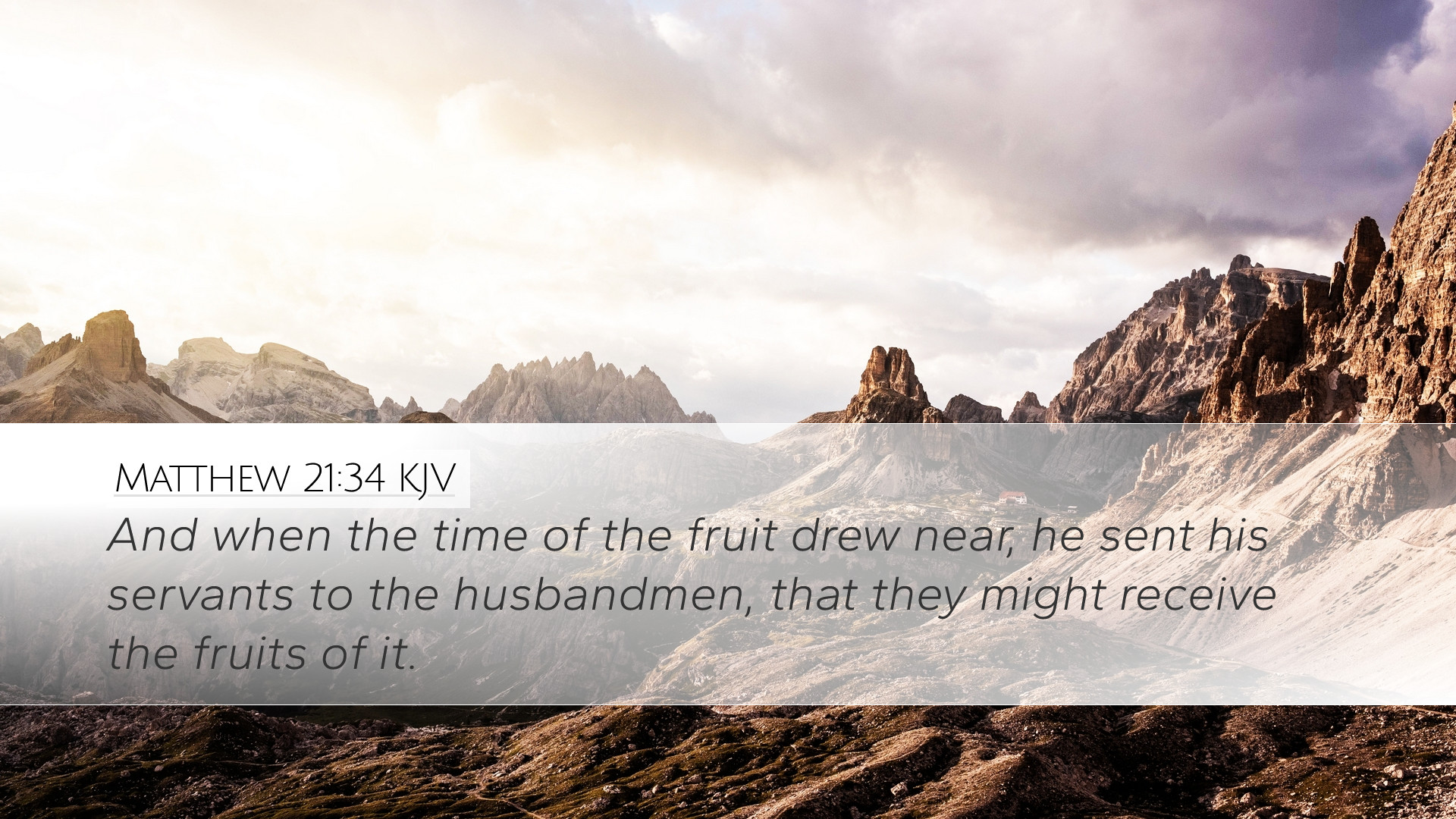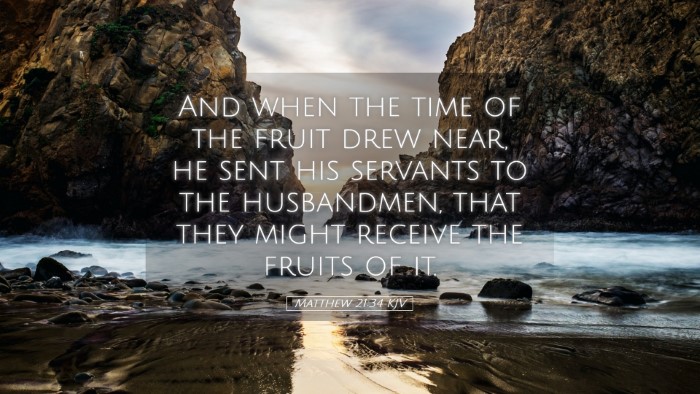Matthew 21:34 Commentary
Verse: "And when the time of the fruit drew near, he sent his servants to the husbandmen, that they might receive the fruits of it."
Introduction
This verse is situated within the context of the parable of the wicked husbandmen, where Jesus addresses the religious leaders of His day. The imagery of the vineyard and the husbandmen encapsulates profound theological truths regarding God's expectations, judgment, and the rejection of His messengers.
The Vineyard Symbolism
The vineyard represents the kingdom of God and God's chosen people, often signifying Israel in the prophetic literature (Isaiah 5:1-7). The expectation of the fruits signifies the spiritual productivity that God anticipated from His people. Matthew Henry emphasizes that God expects to receive a return from His creation, which in this parable refers to righteousness and justice from the religious leaders and the people.
The Role of the Servants
God sends His servants to demand fruit. These servants are representative of the prophets throughout Israel's history, who were sent to urge repentance and fidelity to God's covenant. Albert Barnes notes that the repeated sending of servants illustrates God's patience and mercy toward humanity through history. Each envoy bears a message meant to bring about repentance and reconciliation.
Key Takeaway:
- God’s Patience: The sending of servants displays God's long-suffering and desire that none should perish (2 Peter 3:9).
- Rejection of God’s Messengers: The impending violence towards the servants foreshadows the treatment of the prophets and ultimately culminates in the rejection of Jesus Himself.
The Time for Fruit
The phrase “when the time of the fruit drew near” signifies a critical juncture; this timing illustrates God's ultimate authority and His right to expect a harvest from His vineyard. Adam Clarke emphasizes that the expectation of fruit is often aligned with divine promises and covenants. The urgency inherent in this phrase is significant—God’s expectation is not indefinite; there is a season of accountability.
Implications for Believers:
- Accountability: This verse serves as a reminder for contemporary believers that they too are expected to bear fruit in accordance with their faith (John 15:8).
- Spiritual Maturity: As Christian leaders and followers, understanding our roles as stewards of the gospel carries the weight of responsibility regarding the fruit we produce.
Theological Insights
This parable reveals essential theological principles regarding God's righteousness, judgment, and the sovereignty of Christ. It emphasizes the seriousness of ignoring God’s call and the consequences that follow. Here are a few theological insights drawn from scholarly interpretations:
- The Righteousness of God: The act of sending servants reflects God’s justice and His right to expect fidelity from His creation.
- Christ as the Fulfillment: In the greater narrative, Christ is the ultimate envoy sent to win back the hearts of His people, a truth emphasized by both Henry and Clarke.
- God’s Judgment on Israel: This scripture indirectly critiques the Jewish leaders of Jesus’ time, foreshadowing the impending judgment upon them for their rejection of Him.
Conclusion
Matthew 21:34 serves as a poignant reflection on divine expectations and human accountability. It challenges pastors, students, and theologians to consider their own response to God's call. Like the husbandmen, we hold a grave responsibility—not just to acknowledge our role but to actively contribute to the kingdom by bearing fruits of righteousness, love, and justice in our lives. As we rightly handle the Word of God, may we be ever mindful of our temporal opportunities to respond to His grace.


